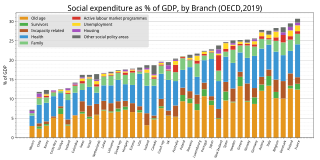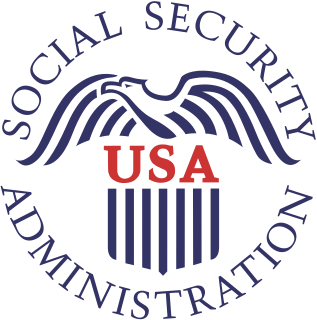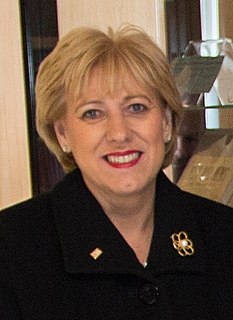Related Research Articles

Social services are a range of public services intended to provide support and assistance towards particular groups, which commonly include the disadvantaged. They may be provided by individual actors, private and independent organisations, or administered by a government agency. Social services are connected with the concept of welfare and the welfare state, as countries with large welfare programs often provide a wide range of social services. Social services are employed to address the wide range of needs of a society. Prior to industrialisation, the provision of social services was largely confined to private organisations and charities, with the extent of its coverage also limited. Social services are now generally regarded globally as a 'necessary function' of society and a mechanism through which governments may address societal issues.

The welfare state is a form of government in which the state protects and promotes the economic and social well-being of its citizens, based upon the principles of equal opportunity, equitable distribution of wealth, and public responsibility for citizens unable to avail themselves of the minimal provisions for a good life. Sociologist T. H. Marshall described the modern welfare state as a distinctive combination of democracy, welfare, and capitalism.

Welfare is a type of government support intended to ensure that members of a society can meet basic human needs such as food and shelter. Social security may either be synonymous with welfare, or refer specifically to social insurance programs which provide support only to those who have previously contributed, as opposed to social assistance programs which provide support on the basis of need alone. The International Labour Organization defines social security as covering support for those in old age, support for the maintenance of children, medical treatment, parental and sick leave, unemployment and disability benefits, and support for sufferers of occupational injury.
Welfare reforms are changes in the operation of a given welfare system, with the goals of reducing the number of individuals dependent on government assistance, keeping the welfare systems affordable, and assisting recipients to become self-sufficient. Classical liberals, libertarians, and conservatives generally argue that welfare and other tax-funded services reduce incentives to work, exacerbate the free-rider problem, and intensify poverty. On the other hand, socialists generally criticize welfare reform because it usually minimizes the public safety net and strengthens the capitalist economic system. Welfare reform is constantly debated because of the varying opinions on the government's determined balance of providing guaranteed welfare benefits and promoting self-sufficiency.
Guaranteed minimum income (GMI), also called minimum income, is a social-welfare system that guarantees all citizens or families an income sufficient to live on, provided that certain eligibility conditions are met, typically: citizenship; a means test; and either availability to participate in the labor market, or willingness to perform community services.
Legal aid is the provision of assistance to people who are unable to afford legal representation and access to the court system. Legal aid is regarded as central in providing access to justice by ensuring equality before the law, the right to counsel and the right to a fair trial. This article describes the development of legal aid and its principles, primarily as known in Europe, the Commonwealth of Nations and in the United States.
Social welfare has long been an important part of New Zealand society and a significant political issue. It is concerned with the provision by the state of benefits and services. Together with fiscal welfare and occupational welfare, it makes up the social policy of New Zealand. Social welfare is mostly funded through general taxation. Since the 1980s welfare has been provided on the basis of need; the exception is universal superannuation.
The Ministry of Social Development (MSD) is the public service department of New Zealand charged with advising the government on social policy, and providing social services.

Social programs in Canada include all Canadian government programs designed to give assistance to citizens outside of what the market provides. The Canadian [[social safety s a broad spectrum of programs, many of which are run by the provinces. Canada also has a wide range of government transfer payments to individuals, which totaled $176.6 billion in 2009—this cost only includes social programs that administer funds to individuals; programs such as medicare and public education are additional costs.
Social security is divided by the Indian government into seven branches: healthcare; old age/retirement benefits; unemployment insurance; life and disability insurance; maternity and childcare benefits; rural job guarantee; and food security. The Central Government of India's social security and welfare expenditures are a substantial portion of the official budget and well as budgets of social security bodies, and state and local governments play roles in developing and implementing social security policies. Additional welfare measure systems are also uniquely operated by various state governments. The government uses the unique identity number (Aadhar) that every Indian possesses to distribute welfare measures in India. The Code On Social Security, 2020 is part of the Indian labor code that deals employees' social security and have generous provisions on retirement pension, healthcare insurance and medical benefits, sick pay and leaves, unemployment benefits and paid parental leaves. The largest employment related social security programs backed by The Code On Social Security, 2020 are the Employees' Provident Fund Organisation for retirement pension, provident fund, life and disability insurance and the Employees' State Insurance for healthcare and unemployment benefits along with sick pays. There is also the National Pension System which is increasingly gaining popularity. These are funded through social insurance contributions on the payroll. While the National Food Security Act, 2013, that assures food security to all Indians, is funded through the general taxation.
The Commission on Social Welfare (CSW) was a commission in Ireland that from 1983 to 1986 reviewed social welfare in the country. Social security policy between 1987 and 1994 was heavily influenced by the findings of the CSW.
Welfare in France includes all systems whose purpose is to protect people against the financial consequences of social risks.

Social programs in the United States are programs designed to ensure that the basic needs of the American population are met. Federal and state social programs include cash assistance, health insurance, food assistance, housing subsidies, energy and utilities subsidies, and education and childcare assistance. Similar benefits are sometimes provided by the private sector either through policy mandates or on a voluntary basis. Employer-sponsored health insurance is an example of this.
LWA may refer to:

The National Health Mission (NHM) was launched by the government of India in 2013 subsuming the National Rural Health Mission and National Urban Health Mission. It was further extended in March 2018, to continue until March 2020. It is headed by Mission Director and monitored by National Level Monitors appointed by the Government of India.

The National Social Assistance Programme (NSAP) is a Centrally Sponsored Scheme of the Government of India that provides financial assistance to the elderly, widows and persons with disabilities in the form of social pensions.
The Social Fund in the UK was a form of welfare benefit provision payable for exceptional or intermittent needs, in addition to regular payments such as Jobseeker's Allowance or Income Support.
The Essential Living Fund (ELF) is a local welfare assistance scheme in Essex, England that was introduced in April 2013 following the abolition of the discretionary element of the Social Fund. It replaces two discretionary elements of the Social Fund - crisis loans and community care grants. Under the old system these payments were administered by the Department for Work and Pensions but ELFs are now administered by local government. According to Citizens Advice literature ELFs are "designed to ease exceptional pressure on people and their families". However, these benefits are not in the form of currency and are distributed using indirect methods such as: Use of food vouchers or supermarket vouchers, use of AllPay cards, provision of recycled furniture from reputable charity, and provision of white goods from a reputable local dealer. These indirect methods reduce the control participating individuals have over what they buy.
The Social Welfare Department is a department of the Hong Kong Government responsible for providing welfare services to the community.

The Minister for Social Protection is the senior minister at the Department of Social Protection in the Government of Ireland.